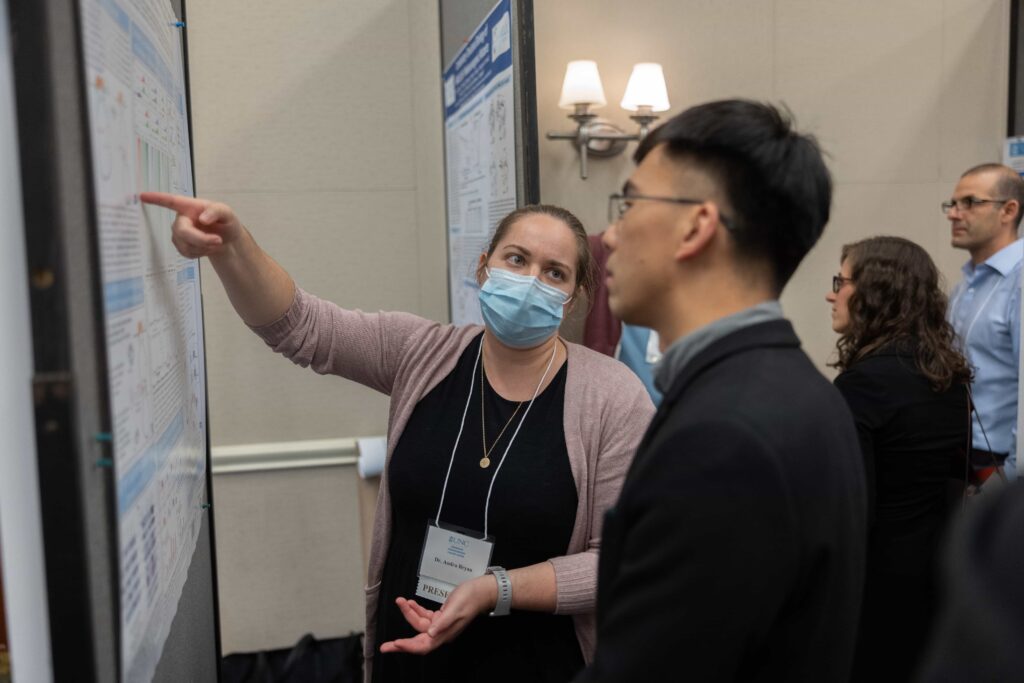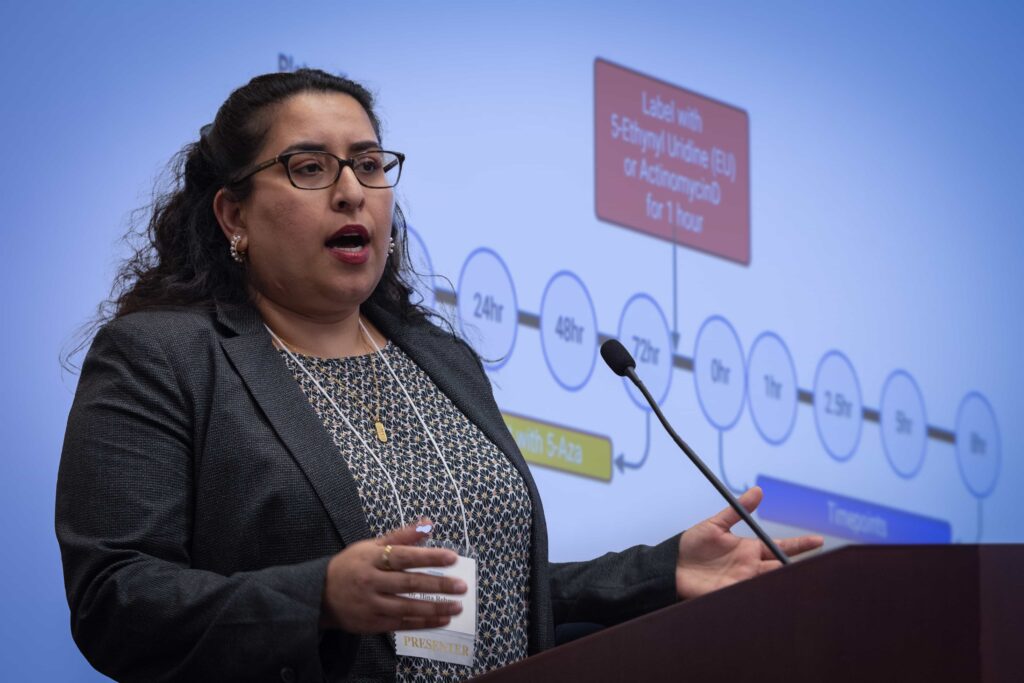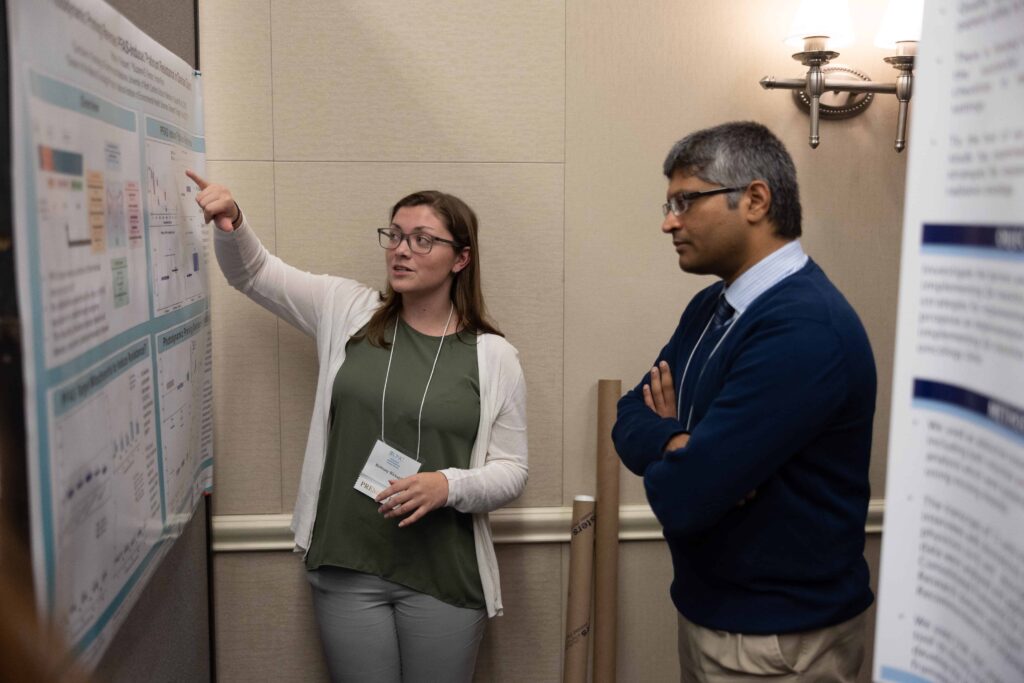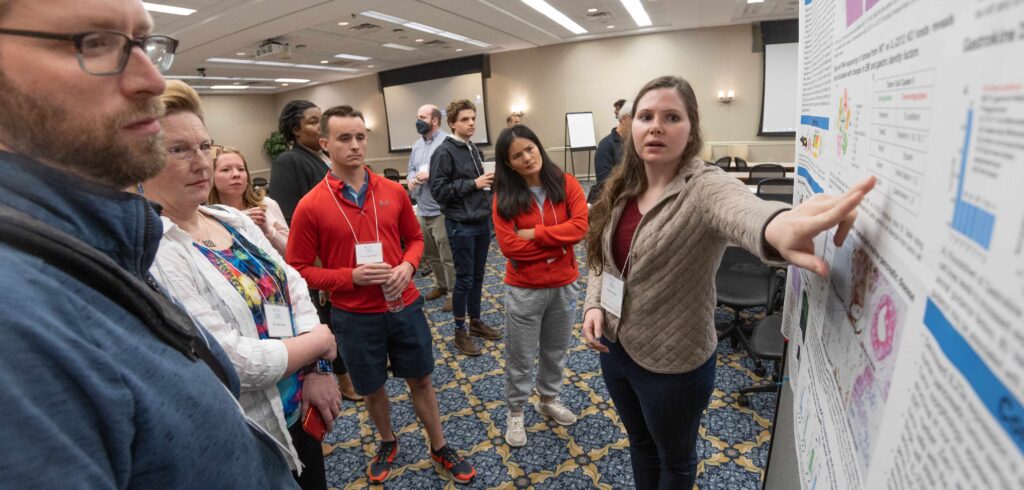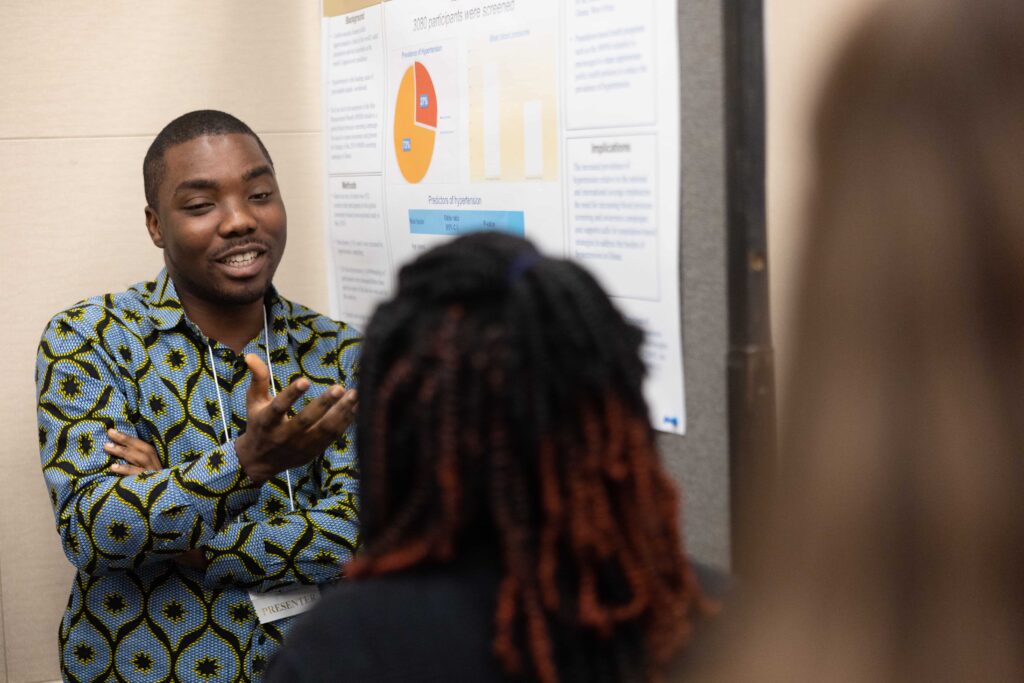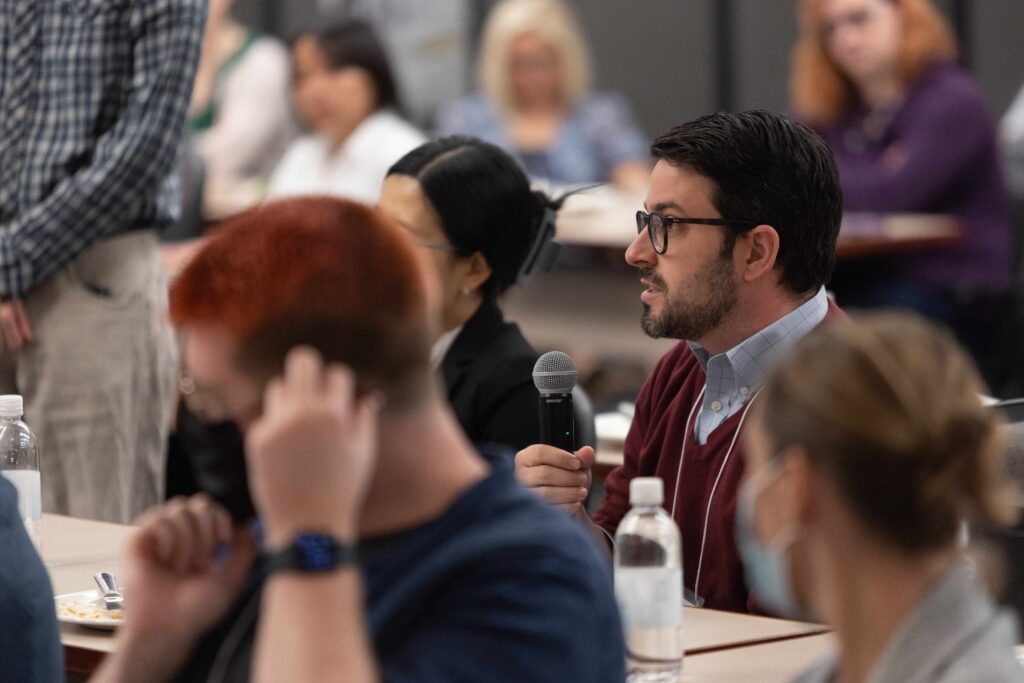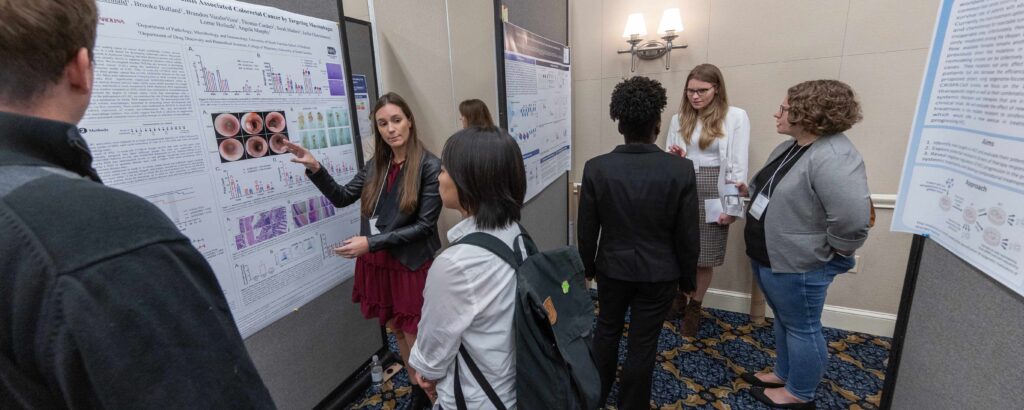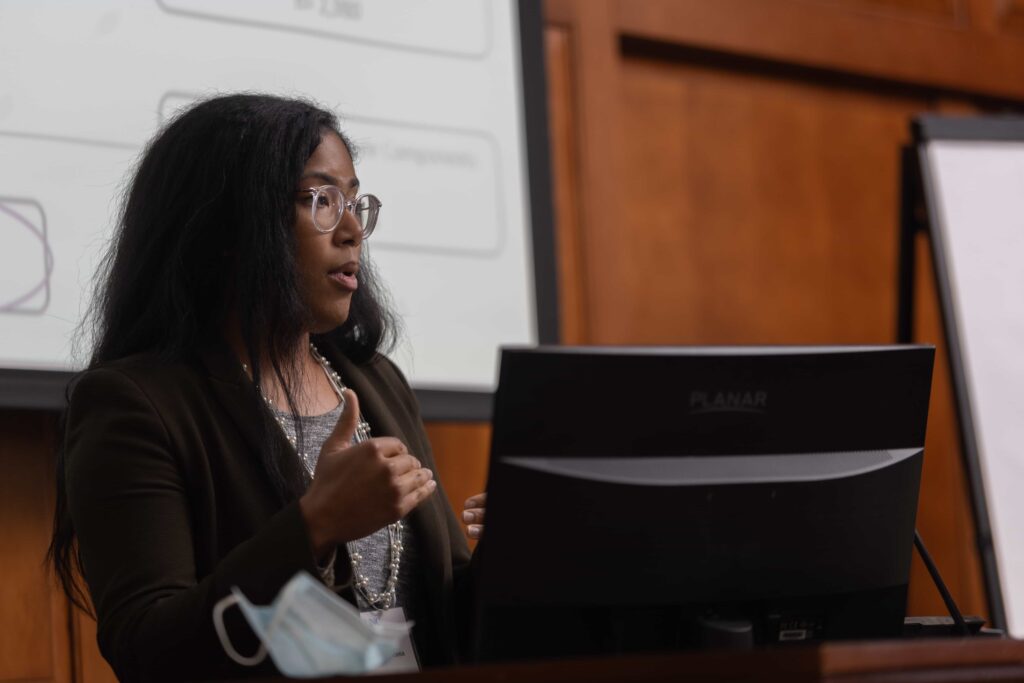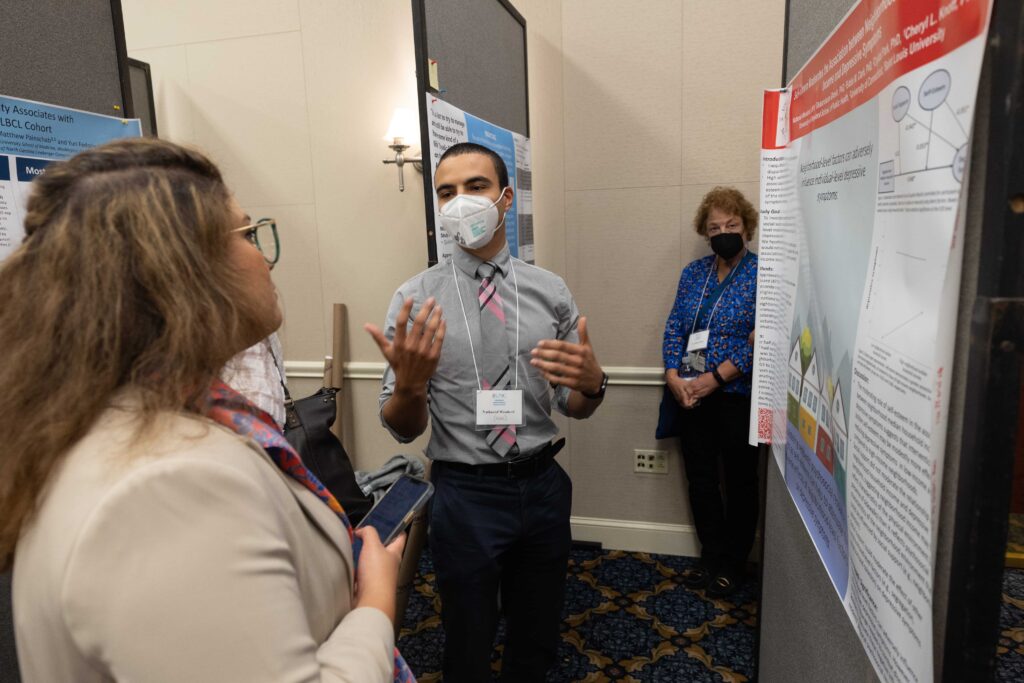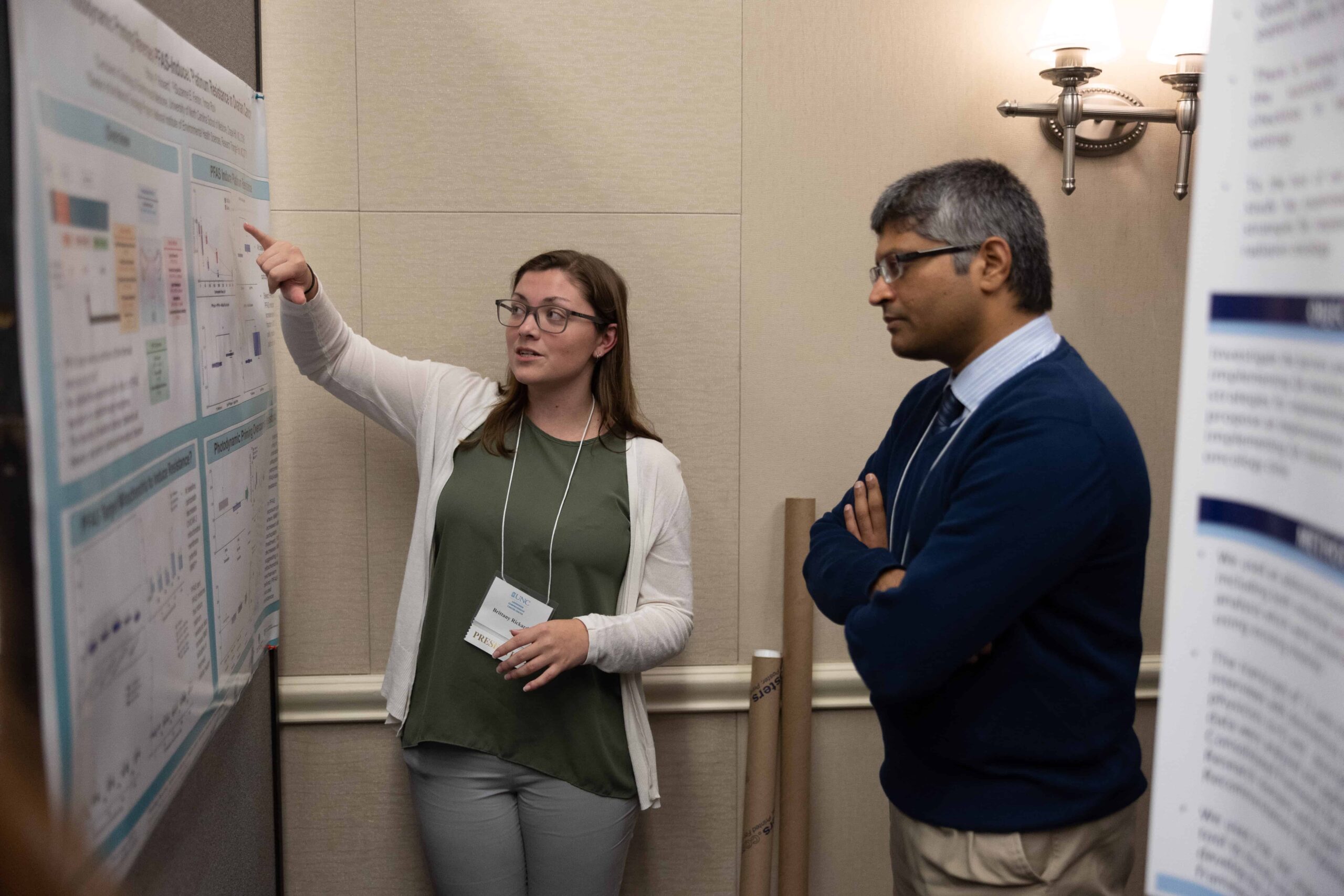
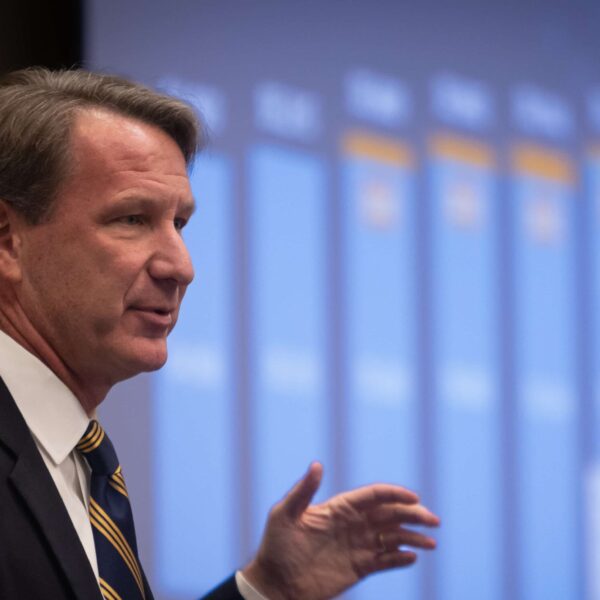
In review: Postdoc-Faculty Research Day
UNC Lineberger’s 47th annual Postdoc-Faculty Research Day at the Rizzo Center in Chapel Hill provided an opportunity for cancer center trainees to present their scientific findings to an audience of peers and faculty.
This year, trainees from all cancer center disciplines, including population sciences, were invited to participate in this event.
Ned Sharpless, MD, former director of the National Cancer Institute, 2017-22, acting commissioner for Food and Drugs at the U.S. Food and Drug Administration in 2019, and former director of UNC Lineberger, 2014-17, provided the keynote address.
Nearly 150 people attended the full day of oral and poster presentations by graduate students and postdoctoral research associates, with an additional 15 virtual attendees.
The postdoctoral committee, Mohamed Attia, PhD, Fernando Diaz, MD, Matthew LeBlanc, PhD, RN, Denis Okumu, PhD, and Sherette Godfrey, PhD, assisted the Cancer Research Training and Education Coordination program’s Ashley Leak Bryant, PhD, RN, OCN, FAAN, Bernard E. (Buddy) Weissman, PhD, Jen Jen Yeh, MD, and John Overall with planning and coordinating the meeting, which had two tracks – one focused on basic and clinical/translation science and the other on population science. In total, there were 20 oral presentations and 41 poster presentations.
Keynote highlights
Sharpless, who recently returned to the UNC School of Medicine faculty as professor of medicine, cancer policy and innovation, and a UNC Lineberger member, spoke about the role the federal government can play in ending cancer, as well as the challenges that might impede its efforts.
He said there have been many notable advances in improving cancer outcomes since the 1990s, but not everyone is benefitting equally in terms of lower cancer mortality rates. “While we have made progress in cancer mortality as a single number, it is not been uniform across the United States,” he said. In addition to significant racial disparities with some cancers, Sharpless said rurality also contributes to care disparities. Patients in rural areas typically have less access to care, lower socioeconomic status and face greater structural poverty, resulting in worse outcomes.
“A lot of disparity data are improving, but if I show the same data for rural versus urban, that is the bad one. In the 1990s, rural patients did better than urban patients, since then every year the gap between rural and urban increases,” Sharpless said.
Sharpless cited several gains made in cancer outcomes, gains he believes will continue, but he said many challenges lie ahead. “So, what’s the problem? Low pay lines, budgetary pressures, especially in FY24, persistence in disparities, especially rural, regulatory backsliding, financial toxicity, lack of access, and threats to innovations,” he said. With the Biden administration’s goal to cut cancer mortality in half by 2047, Sharpless said addressing these issues will be critical.
Awards
The day finished with the presentation of awards for the best oral and poster presentations, judged by a panel of faculty and trainee reviewers. Each winning presenter received a $250 cash award.
Best Oral Presentation (Postdoc)
Justin Sperlazza, MD, PhD (Ian Davis, MD, PhD)
“Epigentic modulation of cancer antigens to enhance immunotherapy in pediatric solid tumors”
Best Oral Presentation (Graduate student)
Jiona Mills (Shakira Grant, MBBS)
“ ‘If [multiple myeloma] is just for Black people, they don’t care to study it, maybe that’s why it is no cure’: Dyadic perspectives on the legacy of Tuskegee and trust in medical care for multiple myeloma.”
Best Poster Presentations (Postdocs)
Jennifer Klomp, PhD (Channing Der, PhD)
“System-wide determination of the functional ERK-regulated phosphoproteome in KRAS-mutant pancreatic cancer”
Sirui Li, PhD (Jenny PY Ting, PhD)
“STING-induced B regulatory cells compromise NK function in cancer immunity”
Audra Bryan, PhD (Jill Dowen, PhD)
“Elucidating structural regulators of enhancer-promoter loops and determining their roles in the regulation of gene expression”
Best Poster Presentations (Graduate Students)
Colleen Steward (Yuliya Pylayeva-Gupta, PhD)
“Unraveling B cell differentiation in pancreatic cancer using engineered neoantigens”
Jonathan DeLiberty (Kirsten Bryant, PhD/Channing Der, PhD)
“PIKfyve Inhibition is a Fyve-Out-of-Fyve Strategy for Targeting Autophagy in Pancreatic Ductal Adenocarcinoma”
Emilie Duchesneau (Jennifer Lund, PhD)
“One-year mortality and varying ascertainment windows for a Medicare claims-based proxy for frailty in women with stage I-III breast cancer”
Jiona Mills (Shakira Grant, MBBS)
“ ‘If [multiple myeloma] is just for Black people, they don’t care to study it, maybe that’s why it is no cure’: Dyadic perspectives on the legacy of Tuskegee and trust in medical care for multiple myeloma.”

